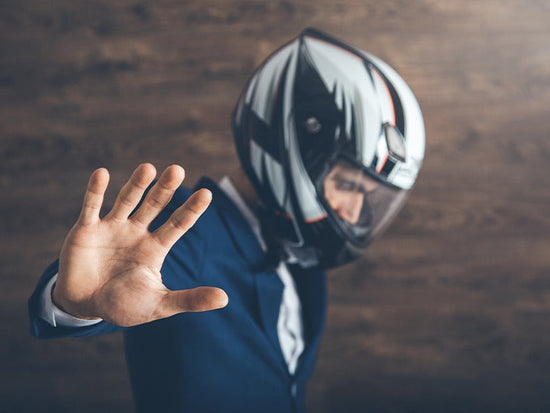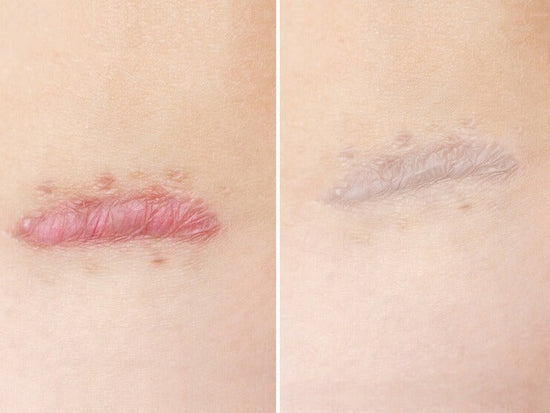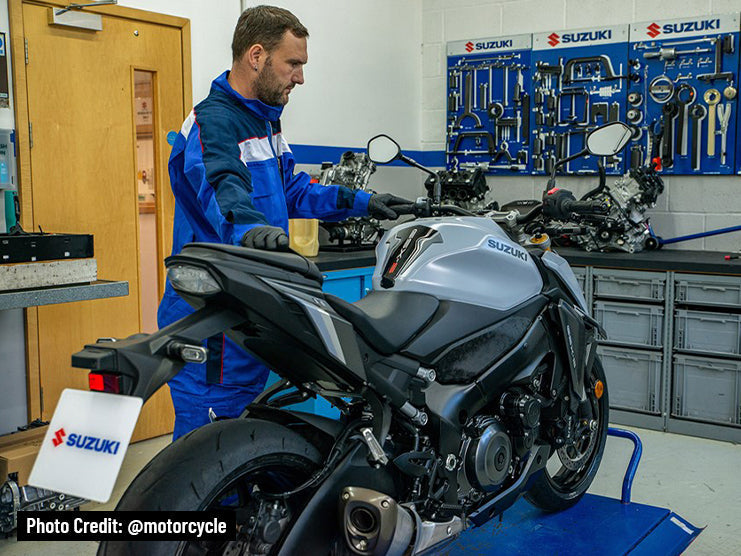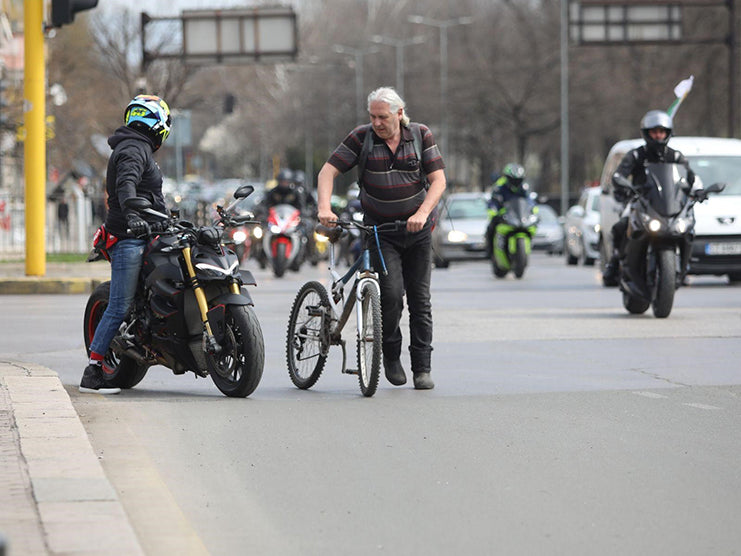Table of Content
Motorcycle accidents can notably impact a person's life both physically and mentally. The emotional and mental distress as a result of accidents is frequently overshadowed due to physical injuries. The trauma of a motorbike crash can permanently harm someone's mental fitness, resulting in tension, depression, trauma, and Post Traumatic Stress Disorder (PTSD) that might affect the rider’s daily life and well-being. This article examines how a motorbike accident can impact your mental fitness and offers recommendations on how to take care of yourself.
1. The Immediate Mental Health Effects of a Motorcycle Accident
Following a motorbike crash, riders can feel extreme worry and panic. A motorbike accident can considerably affect a rider's emotional state, particularly if it was serious. Many riders experience PTSD, including nightmares, flashbacks, and anxiety that usually starts after days, weeks, and months following the motorcycle accident.
2. Mental Health Problems Caused by Motorcycle Accidents
Many motorists suffer from PTSD as a result of accidents. The accident may additionally make it hard for the rider to control their feelings. For instance, if someone believes that someone else induced the accident, he/she may additionally experience irritated or disenchanted. They may feel responsible or ashamed in the event that they think they are the reason why the accident occurred.
In addition to the direct outcomes of a motorcycle accident, there can also be emotional effects. Many motorcyclists document experiencing persistent sadness, anxiety, and trouble relaxing and concentrating. They may also be afflicted by emotions of loneliness which makes it difficult for riders to return to normal life.
3. Brain Injuries Due to a Motorcycle Accident
Motorcycle injuries can cause excessive or everlasting brain harm. Motorcycle riders are prone to head injuries even if they put on a helmet.
Also Read: 10 TIPS ON HOW TO SURVIVE A MOTORCYCLE CRASH
3.1 Nerve Damage and Disability
Motorcycle accidents are one of the leading causes of nerve damage and disability in the United States. Different parts of the body can be affected when the nerves that carry signals from the brain to the body are affected by a stroke.
Nerve damage can be temporary or permanent. When a tendon is torn or stretched but not cut, the tendon is temporarily damaged. In this case, the nerve can eventually heal and resume function. However, this could take weeks, months, or even years, depending on the severity of the harm and the fitness of the rider.
A broken or injured nerve can cause everlasting damage. In this situation, the nerve has suffered irreparable harm and is not functional anymore. Permanent nerve harm can bring about incapacitation and reduce the quality of life. Physical, mental, emotional, and social health may be tormented by nerve harm caused by accidents and can result in disability. A rider who suffered a motorcycle crash may experience the following conditions:
- Struggling with melancholy, anxiety, rage, or disappointment
- Struggling to walk and becoming dependent on others
- Coping with persistent pain and discomfort
- Coping with monetary issues due to medical fees and lack of income
- Dealing with social isolation
3.2 Brain Injury
Motorcycle injuries often result in severe brain injuries, resulting in paralysis and even death. Symptoms may include headaches, lightheadedness, disorientation, and memory loss. Severe TBI can result in permanent brain damage or death. To reduce the risk of brain injuries during an accident, riders must wear DOT-approved helmets and other protective gear.
4. How to Manage Mental Health Issues Following a Motorcycle Accident
4.1 Seek Professional Assistance
To get emotional support, you should consider meeting with a therapist or counselor, joining a support group, and doing community service. If you or a loved one was involved in a motorcycle accident and sustained a brain injury, seek medical help right away and contact an experienced lawyer.
4.2 Regain Confidence
Your confidence can be shattered by fear and anxiety, which can also cause you to question your riding skills. If you want to gradually return to riding, start by practicing in a secure and controlled environment. Go on short rides on roads with low traffic. Practice basic maneuvers until you feel at ease. As you grow in confidence, gradually increase the time, distance, and difficulty of your rides.
4.3 Enjoy Riding Again
Fear and anxiety can make you forget why you love riding. You can also experience happiness, desire, freedom, fun, and think about going somewhere new to try to get rid of these feelings. To revive the joy of riding, try new challenges, ride with friends, and go to new places.
For a comfortable and enjoyable riding experience, Viking Bags can help you customize your motorcycle with various attachments, including sissy bars, fairings, crash bars, saddlebags, tank bags, touring-oriented handlebars, backrests, and comfortable seats.
4.4 Learn From Your Mistakes
Guilt over an accident can cause anxiety and worry. Instead of feeling sorry for yourself, try to make something positive out of the tragedy. Think about what took place and what you may have performed to prevent it. Acknowledge external factors whilst coping with your paintings. Learn from your mistakes to improve your driving abilities and competencies.
4.5 Talk to a Friend, Family Member, or Survivor
One way to lessen pressure is to proportion your thoughts and emotions with someone who will pay attention with empathy. You can talk to other bike accident survivors and get assistance from them. Through conversation with others and survivors of motorcycle accidents, you can get a perspective and come back to living a normal life.
4.6 Relax Your Mind and Body
Stress can affect your capability and your will to ride again as it is an outcome of anxiety and worry. You can relax your mind and body through exercise, meditation, and yoga.
5. Can Psychological Damage Due to a Motorcycle Accident Be Reimbursed?
Yes, you could acquire compensation for the emotional harm caused by a motorcycle accident. However, the system calls for legal action and takes time. Talk to a lawyer experienced in this discipline to decide when you should file a case and to make sure you get compensated for your loss.
6. How Can PTSD Due to a Motorcycle Accident Affect Your Finances?
The compensation you receive after a motorcycle accident can be affected by PTSD. But PTSD can also add to your medical bills and impair your ability to function. There must be strong evidence for a link between an accident and PTSD. However, you may have to spend a lot of money to find a witness.
7. The Bottom Line
It is important to understand how a motorcycle accident can affect a person's mental health and lead to conditions such as unhappiness, anxiety, and depression. Nerve damage and traumatic brain injury can exacerbate psychological problems. After a motorcycle accident, it is important to seek professional help, talk to people you trust, learn from the experience, try to regain confidence, relax body and mind, and regain the joy of riding. You may also face legal issues as a result of PTSD. After an accident, it is very important to take care of your physical and mental injuries.







Leave a comment
All comments are moderated before being published.
This site is protected by reCAPTCHA and the Google Privacy Policy and Terms of Service apply.